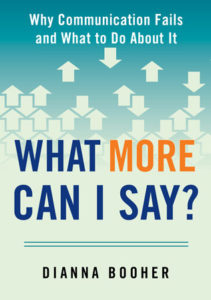


“How have you written so many books?” “Is writing hard?” Those two questions pop up frequently when I’m meeting someone for the first time—especially newbies to the publishing industry.
Let’s just get the quick answers out of the way. Yes, writing a quality book that wins a major contract is hard.
Second answer: A long-term successful career as an author requires persistence, discipline, and self-confidence. In fact, an author’s attitude and work habits often play a bigger role in success than skill and marketing savvy.
The book writing process involves finding the right agent for your book and then that agent landing a contract from a major publisher. For some that “shopping” process takes days; for others, it takes years.
Why? Two reasons:
1) The competition for an agent’s or editor’s attention goes beyond overwhelming. Many agents report that they receive more than 100 queries per day from hopeful authors. They accept fewer than one percent of all the book projects that come through their door.
2) Book tastes vary from agent to agent and editor to editor. Subjectivity surfaces. Agents claim to be able to spot a bestselling idea—whether they agree with the book’s premise or not. Maybe they can. But they still may not be willing to accept the challenge to represent a work with which they disagree. Even loving mothers find it hard to sell their toddler on eating vegetables they themselves dislike!
Just as each of us has our own preferences of what kind of movies, podcasts, or blogs we like, editors and literary agents have those same subjective reactions to books. So to get representation from an agent to sell your book to a major traditional publisher, you’ll typically need to query several agents—maybe even a dozen or more—to find the appropriate agent who believes in your book and your long-term goals as an author.
Ask my friends Jack Canfield and Mark Victor Hanson, authors of the mega-selling Chicken Soup for the Soul series, how many rejections they received on their initial book project. (Answer: 144). “If we had given up after 100 publishers, I likely would not be where I am now…. I encourage you to reject rejection.” At last count, they’d sold more than 500 million copies of the series.
Yes, I know discipline sounds and feels like a dirty word. But that’s the reality of the author’s road to success. Without a “boss” assigning you projects and giving you objectives and deadlines, you yourself must select your own projects and set your own deadlines.
Frankly, society gives authors permission to work as much or little as they want to each day. Tell friends that you’re “working on a book,” and they’ll happily dismiss you from other obligations for years.
While “writing a book,” some authors work as little as an hour a day. Others work 8-12 hours a day. For those who stretch out their writing over months or years, it’s awfully tempting to stop for just about anything more engaging that watching a caterpillar crawl.
A draft that needs editing is about as appealing as leftover, week-old pizza.
Without self-discipline to complete the project, “writing a book” can easily become a lifetime project. Believe me, I talk to many would-be authors who’ve been “working” on their book for 10 years or longer. If you’re Harper Lee turning out another masterpiece, that time may be well invested. But for most authors, not so.
All the editor wants is your finished book manuscript by the agreed-upon deadline. If you don’t have the discipline to sit down to the computer and consistently produce, you fail. Not for lack of skill. But for lack of discipline.
Among all my book-writing clients, discipline remains their biggest problem. Those less determined let too many things crowd out consistent writing time.
Authorship can be a lonely business. Writing a book takes a few weeks or months before you have enough done to show friends or family for their opinions. You have no boss or coworkers to brainstorm ideas or give feedback. Plus, as noted previously, authorship involves rejections: Agents who say they’re not interested in your work. Editors who often ask for rewrites on parts of your manuscript. Reviewers who post unfavorable reviews on social media or Amazon. Readers who write to say your book bored them and contains blunders on page 17, 83, and 159.
For most authors—even those mega-selling authors—self-doubt rears its head from time to time. Left untamed, that monster can zap your brain and swallow your courage.
All that to say, without self-confidence in your own writing and marketing skills, you find it increasingly difficult to keep “plugging away” alone without promise of a future paycheck.
In essence, a book author’s experience is unlike that of other professionals. How many engineers, IT specialists, doctors, or bookkeepers do you know who work diligently for a year or two, and then have to wait until project completion to find out if they’ll be getting a paycheck?
For a long while, self-confidence may be the only fuel in your author tank.
Learn more skills critical to a successfl author career with What More Can I Say: Why Communication Fails and What to Do About It.
